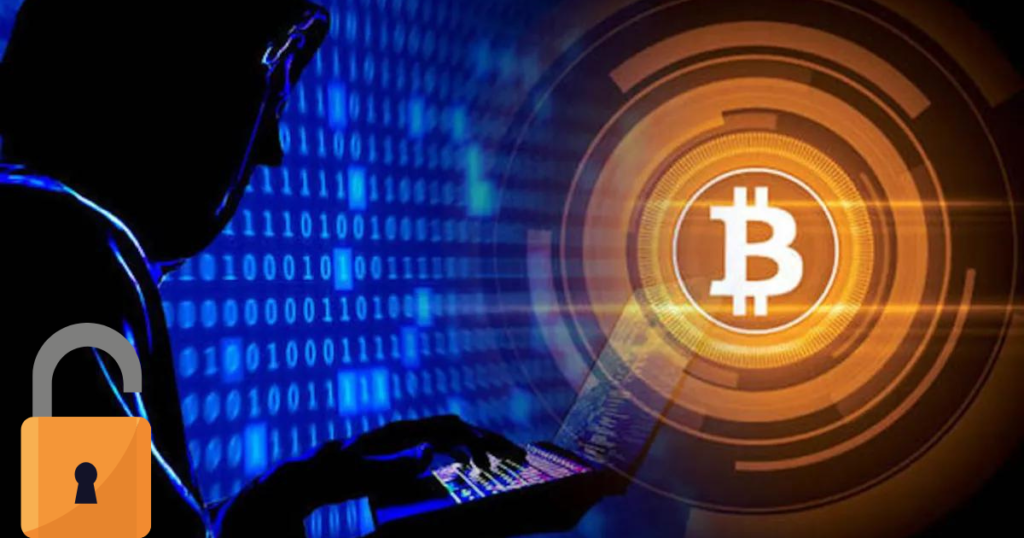Most of today’s encryption will eventually be broken by quantum computing, including the signing algorithm used by Bitcoin and other cryptocurrencies.
In this article, I will talk about quantum computing in the context of bitcoin. It’s a threat that many perceive as the most dangerous one to the development of bitcoin, but how does it actually affect bitcoin?
Bitcoin Quantum Computing
First things first what’s the general risk that emanates from quantum computing? Bitcoin uses the elliptic curve digital signature algorithm to create pairs of keys where one is public and the other one is private. It’s similar to an email and an email password. The difference is that there is a one-way asymmetric cryptographic function that lets you generate the public key if you have the private key, but not the other way around. With an email password, you have no way to actually get the email address so there’s no function like that.
Ecdsa so far is secure and it would take so much time and energy to break the relationship to get a private key from a public key that it doesn’t even make sense to try it out. This hypothetically changes with a large enough quantum computer. The mathematician peter shore published an algorithm that can find the private key of the public key 25 years ago. This means that with a sufficiently large quantum computer you can fake digital signatures, so you can send bitcoin from one address that you should not have access to an address that you own.
This is interesting because it gives us an indication that we will know exactly when quantum computing is here, but one of the interesting things that happen is that while you can change the algorithms on all of the active wallets, some wallets have lost keys or the people who had those keys are dead and they can’t change the signing algorithm which implies that quantum computers will intercept those wallets. We will be able to tell when quantum computing is possible when Satoshi’s coins start to move, which is one of the interesting things that happen.
Related: Custodial vs Non custodial wallets
That’s one of the reasons they’ll move eventually they will move and they’ll move because someone will be able to break the keys, but for the rest of the ecosystem, we can migrate quite easily to another algorithm. It’s not really as big a threat as people think it is, but right now the encryption of bitcoin is still far harder to break than any estimate of existing quantum computers.
Local bitcoins note that existing quantum computers are only operated in labs and still appear to be a long way from becoming a legitimate threat to bitcoin and other cryptocurrencies. According to estimates, a quantum computer of around 4,000 cubits would be required to break bitcoin’s code. While the most powerful quantum computers available right now operate with only about 50 cubits. To avoid vulnerability an upgrade to quantum-resistant algorithms in the bitcoin network might be necessary through a hard fork at some point. There also already is some form of quantum resistance as part of the network. The first address format was p2pk and a lot of coins including those of satoshi are still stored on these addresses. These could be accessed through shore’s algorithm if a powerful enough quantum computer exists.
The next address format is called p2pkh which hashes the public key. So the public key is not exposed if the address does not get reused which makes it at least a lot harder to break it.
The other area next to the elliptic curve digital signature algorithm that might get attacked by quantum computing is the secure hash algorithm that’s used in mining. This is only a possibility though there are also theory works that explain why sharp 256 already is quantum resistant.

Risks of Quantum computing
We actually just need to keep two concepts in mind when thinking about the risk of quantum computing.
Number one quantum resistance is easier to achieve than something breaking quantum resistance. The bitcoin network will likely upgrade to more secure address formats and quantum-resistant mining algorithms. Coins that were lost because someone lost access to the private key will be retrieved by quantum computers because the address formats can’t be upgraded if you don’t have access to them. So there is a huge bounty inside for anyone who has a large enough quantum computer, but the rest of the addresses will just upgrade and be safe.
The second concept that we need to keep in mind, I’m not worried about the NSA having quantum computing because one of the things that are a very basic concept in security is the idea that if you have a very powerful secret weapon you do not use it. You wait until you have a very good reason to use it.
Related: Future of Crypto currency
One way of explaining that is what happened in Coventry when the British had broken the enigma, they had the most important secret was keeping secret the fact that they’d broken the enigma otherwise they would go change the encryption code. So all I’m saying is if the NSA has a quantum computer and they really want to not people not to know that that quantum computer can also break all of the encryption keys on all of the nukes in the world, all of the communication keys, and all of the nuclear subs and all of the military intelligence networks and all of the commercial networks.

